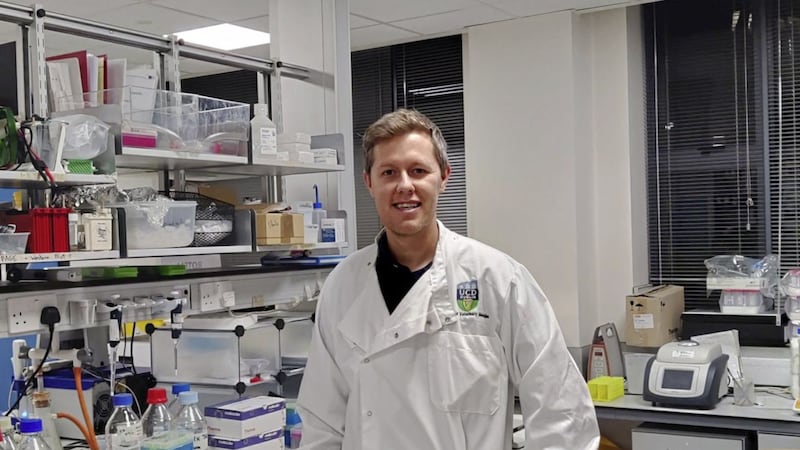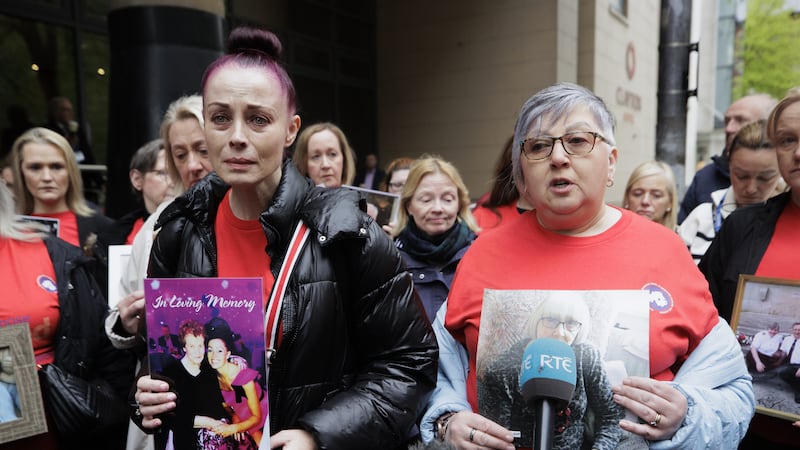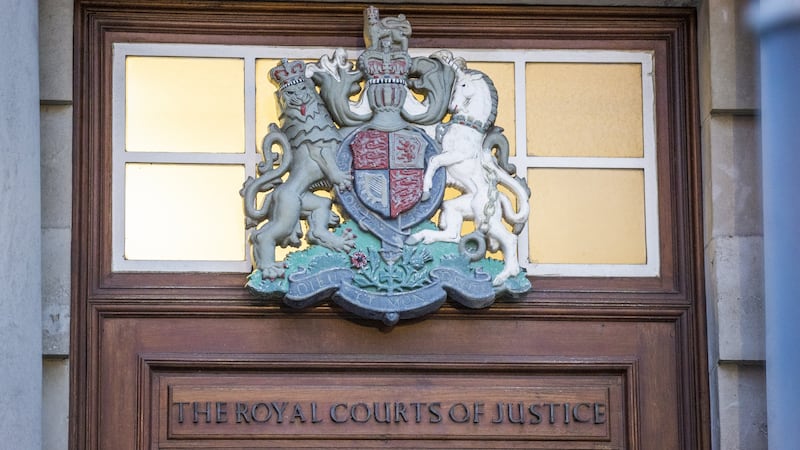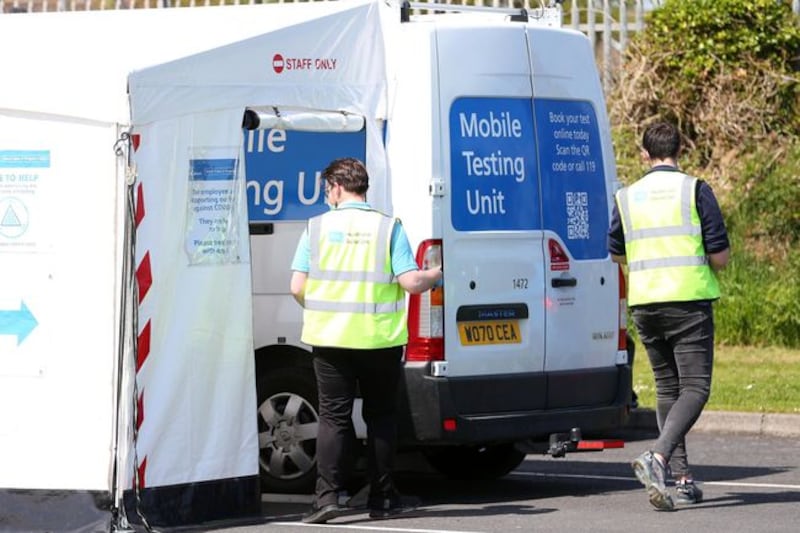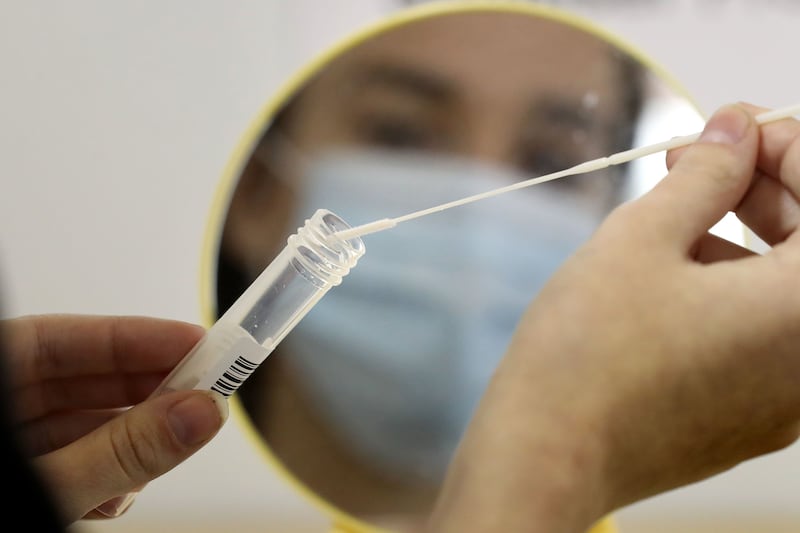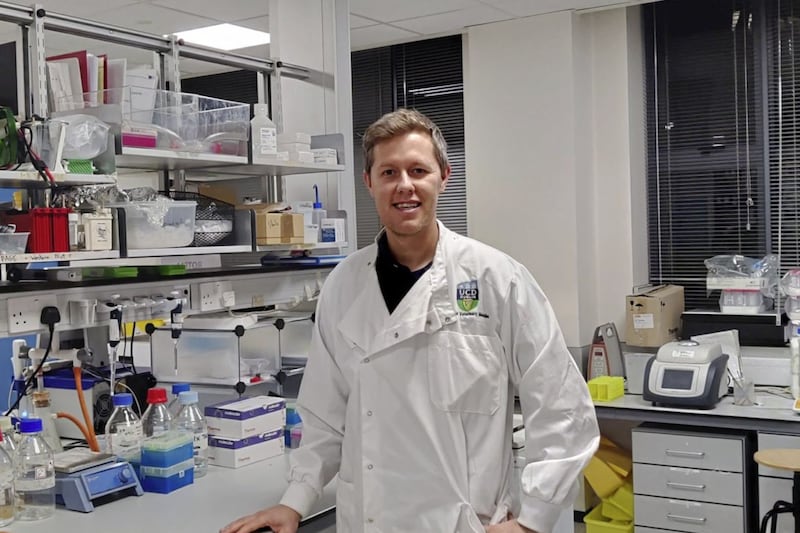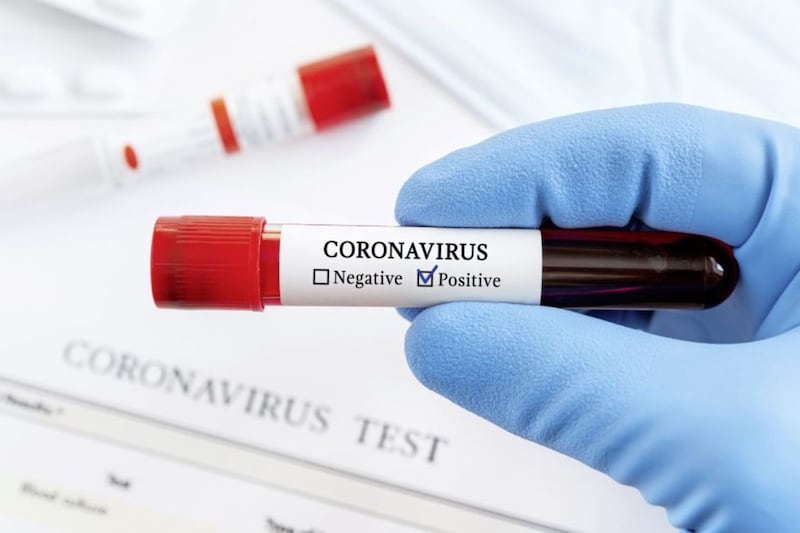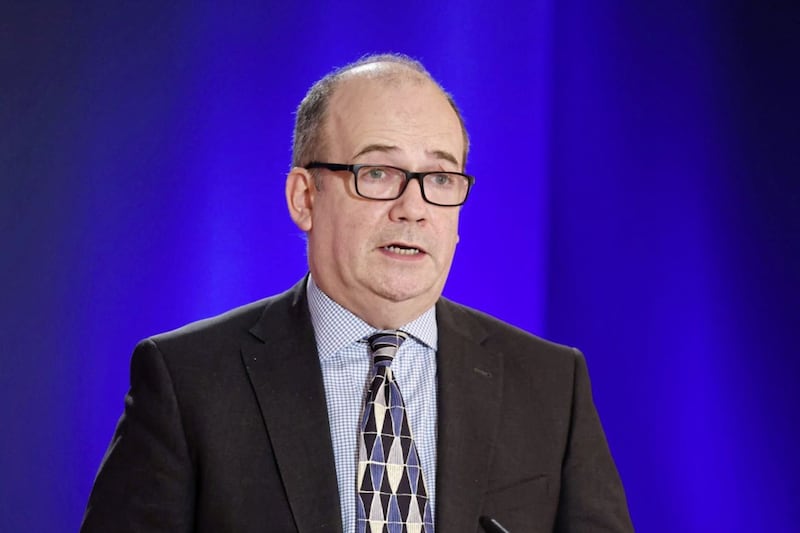PUBLIC health chiefs must "aggressively hunt down" new coronavirus variants to allow society to re-open and remove the fear of further lockdowns, a leading virologist has warned.
Dr Gerald Barry, an assistant professor of virology at University College Dublin (UCD), also pointed to the "very low" cases numbers of the Indian variant in Northern Ireland and the Republic - while urging "caution"in easing restrictions until more data becomes available.
With a spike in cases in England, particularly in Bolton where more than 500 people tested positive for the latest strain, there are growing concerns about the impact of the hospitality sector re-opening and the potential for further regional controls.
Northern Ireland currently has 12 cases of the Indian variant - figures are released each Thursday by the UK government - while the Republic has 41.
British Prime Minister Boris Johnson said that the latest surge in the new strain could "seriously disrupt" plans to lift UK final lockdown rules on June 21 but is pressing ahead with the re-opening of bars and restaurants tomorrow.
For Dr Barry, concerns about emerging variants must be viewed in the context of the successful rollout of a mass vaccination programme as well as the availability of reliable data.
"In relation to the B.1.617.2 variant (the Indian variant) there's really very little evidence to say it’s more virulent, that it causes more disease or that it evades vaccines," he told The Irish News.
"At the moment, the inference based on the little data that we do have is that the transmission rate appears to be higher than the UK Kent variant. But that's in the face of high rates of vaccination.
"In three to four weeks time we’ll probably know a lot more. So I think it would be prudent to play a more cautious role at this point - it might be better to delay for a few weeks the opening of indoor venues until we know more.
"In Ireland, we’re watching the UK very carefully. Effectively they're about four weeks ahead in terms of opening up, they're breaking new ground for us. So we’ll look to see what’s happening and learn from the positives and negatives."
With more than two-thirds of the north's adult population now inoculated with their first vaccine dose and almost 40 per in the Republic with their initial jab, Dr Barry said a "vigorous" clamping down on cases through enhanced contact tracing, sequencing and hotel quarantine will slow the arrival of variants on the island.
But he stressed that variants will continue to emerge as the pandemic rages around the globe.
Last month, the north's health minister Robin Swann was critical of the lack of data sharing by the Republic's officials on international passenger arrivals.
Dr Barry agreed there needed to greater co-operation between north and south and welcomed the creation cross-border Covid steering group. Its membership is to be confirmed.
However, he added: "We’re going to have variants coming out of the woodwork from every corner of the world potentially, and even on our doorstop, until such time cases drop down to a very, very low level.
"So what I would say is that we need to proceed with caution but put the emphasis on contact tracing and isolation, really aggressively hunting down those variants as much as possible."
The expert insisted the "game changing" benefits of the vaccine were real.
"Like everything we’re living through at the moment, it’s a balance of risk and benefit. There’s a risk associated with any variant until we know about it," Dr Barry said.
"But there needs to be realism about the benefits the vaccine is bringing so that we do not live in fear of the potential of a variant causing a problem.
"There has to be hope that vaccination will provide an element of protection, otherwise we will be in perpetual lockdown.
"I think there has to be point - and I think we’re reaching that point - where levels of vaccinations and the levels of protection they provide are such that society needs to start opening back up, maybe with some risk mitigations still in place such as mask wearing and social distancing.
"...And given that the levels of the Indian variant in Northern Ireland are very low, from a public health point of view you would hope they would be able to track and trace and shut down where those cases are very quickly.
"The challenge arises whenever you have travel coming in from England and bringing that variant."
The Irish News asked the Public Health Agency (PHA) to detail what additional measures it had in place to monitor and control the spread of the Indian variant.
An agency spokesman said "the emergence of new strains is fully anticipated and the agency is prepared for dealing with this".
"In addition to the robust contact tracing system already in place, which deals with all strains of the virus, when a new variant is discovered in Northern Ireland, further public health measures are initiated including enhanced contact tracing of cases to help stop the spread. These actions help find out more about the virus and its potential sources and spread, with the support of Whole Genome Sequencing.
"The advice to the public remains the same – stick to guidelines and regulations, get vaccinated when eligible and in particular ensure you follow the rules regarding self-isolation if you test positive."
